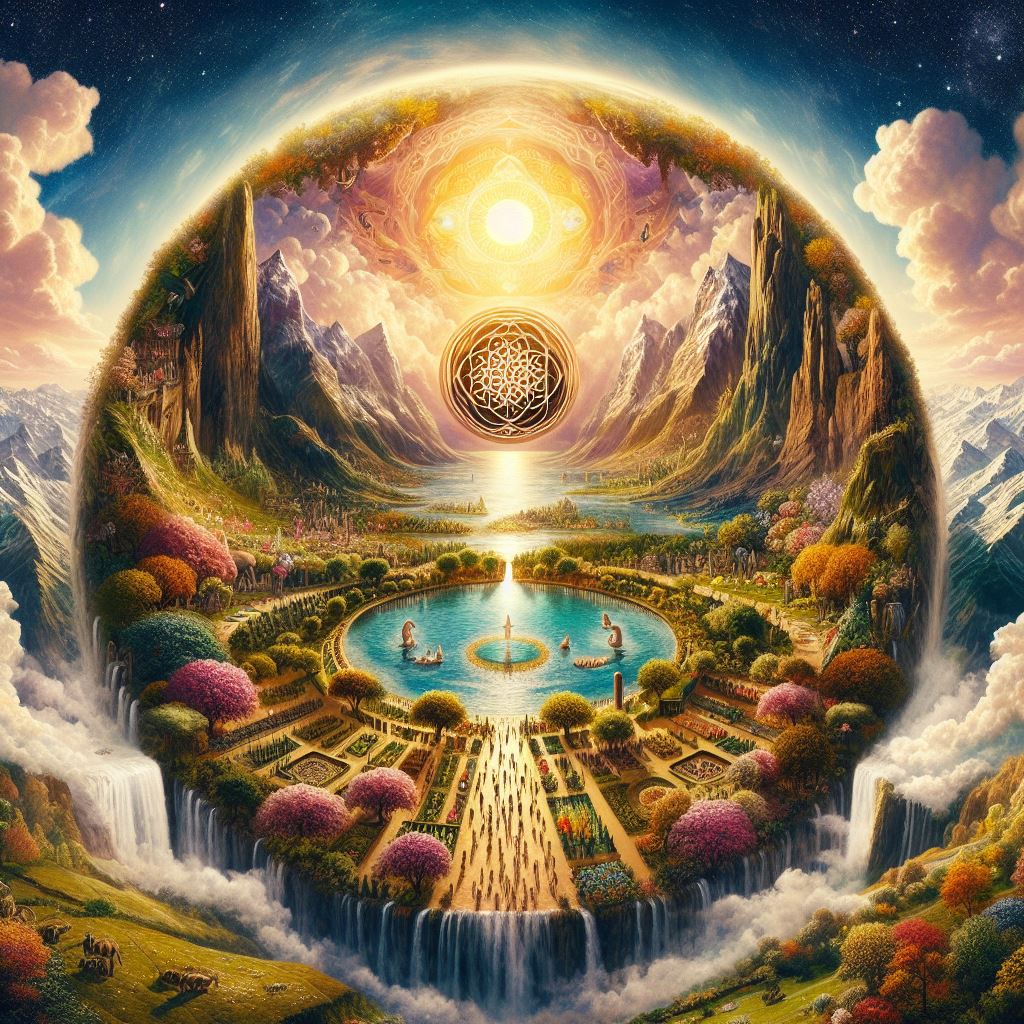In the last three post, I talked about racism in the Book of Mormon, looked at this topic from the perspective of Book of Mormon authorship, and wrapped up looking at why people like to pretend the Book of Mormon is racist. This week I want to move past the Book of Mormon and look at the real problem with the “skin of blackness” in my view (2 Nephi 4:35 RAV, 5:21 OPV). That problem is us.
Skin Color
Let’s look at this using the actual color the Book of Mormon uses: black. If Joseph wrote the book, why is the skin black? Why isn’t it red? In the Saint’s original hymnal, hymn 63 is called “O stop and tell me, Red Man.” The first three verses are as follows:
“O stop and tell me, Red Man, Who are ye? why you roam? And how you get your living? Have you no God;—no home? With stature straight and portly, And deck’d in native pride, With feathers, paints and broaches, He willingly replied:— “I once was pleasant Ephraim, “When Jacob for me pray’d; “But oh! how blessings vanish, “When man from God has stray’d!”
It is clear here that Joesph and the original Saints saw the Native Americans as two things:
- Lamanites
- A red skinned people
Yet the Book of Mormon does not teach this, why not? Because the Native Americans are not the Lamanites? It doesn’t matter if the Book of Mormon happened or not, saying that the Native Americans are the Lamanites is a form of colonialism.
According to Reuters, “Native Americans still have genetic connections to East Asians… but the new sequencing shows that a ‘significant part’ of their genome, as much as 35 percent, is linked to the Middle East, Eurasia and Europe.” That is enough for apologists to jump on, but looking at it scientifically, it is not. (Note, while I do have a Bachelors of Science, I am not a scientist.) If Joesph Smith wrote the book, I believe it would have been more natural in his time period to call the curse on the Lamanites a skin of copper or redness. It would seem more logical to think that the Book of Mormon took place in Africa if written by Smith, as this is where the “Black” race came from, according to thinking at that time. (Today we know that everyone, all races came from Africa.)
Colonialism in the 1800 and Today
In their video, Legend of the Moon Eyed People, the Why Files spends the first half of the video talking about “white Indians” and where they came from. It’s about fifteen minutes long, and the guy is a good storyteller, so if you have time, I recommend watching it. As a Mormon, it will be hard not to see Nephites in the story. Even knowing better, there was a part of me that heard everything I was told growing up about Nephites here in America and wanted it to be true. Thankfully, the last half of the video is the debunking where he explains where these ideas came from. (If you like that video and want more similar content, checkout Smithsonian Cover-Up: Ancient Egyptians and Giants in the Grand Canyon.)
Now, imagine growing up with these stories. Then you find the Book of Mormon. Finally, proof of everything you have been told! Except, that upon closer inspection, it is not. And, unfortunately the internet was not around in the 1800’s to clear up urban legends or other misconceptions. (Though to be fair, the internet hasn’t been that helpful 100 percent of the time today either.) Does this make the Book of Mormon false? No, the Book of Mormon never claims on its own to take place in North or South America. It never claims that the “red” Native Americans are the “black” Lamanites. We did that. And we need to own up to this mistake.
Even today I see fresh videos “proving” the Book of Mormon with colonial propagandas that are hundreds of years old. And we are still colonizing today. When Latter Day Saint churches go into third world countries (or any country really) and try to “Americanize” the people there, we are colonizing. Bring the Gospel of Jesus Christ to the world, sure. But on their terms, not ours.
You are not a Victim
The first reaction I see when I talk about Mormon colonization is that of defense. I want to be clear that this is not an attack. No one wants to be racist, or a colonizer. Or maybe I should say most people do not see themselves as such. But we are by our very nature. We like things to be similar to what we see and what we know. And, if it is working for me, it must work for you, right? Wrong.
I will never forget the day I went out to eat with a close relative who is openly racist. All of my life he told racist jokes, he put anyone who was not white and Protestant down at any opportunity (he also didn’t like Mormons, Catholics, or Jews). I always though that I wasn’t a racist because I wasn’t him. One day at dinner a white man came into the restaurant where we were eating. He clearly worked outside and was, let’s just say he wasn’t wealthy. Based on bone structure and the olive color of his tan, it was clear he was of European decent. My relative started using racial slurs and was complaining that the government was forcing the establishment to serve the man, who he deemed as unworthy of being in his presence. I pointed out that the man was white but just worked outside. My relative knew this, but his dark skin meant he was somehow “lesser.”
Now, re-read that story and see if you can find my racism, as I made a racist comment myself there. Did you catch it? “Based on bone structure and the olive color of his tan, it was clear he was of European decent.” At this point here in the US no one is 100 percent anything, we cannot judge based on skin color or bone structure. I did not see my own racism growing up as it was overshadowed by the racism around me. But my own racism has been pointed out and I do my best to learn and move forward.
I grew up thinking my grandmother was a Lamanite because she was half Native American. Was that racist? Was I being racist? Those who didn’t like my articles on race would likely say that I was. What I know now is that it was colonialism. I didn’t know some “secret truth,” I was merely believing the colonializing myths I was taught growing up. Then I learned better, I pray I am doing better, but I know I am not perfect. I was not the victim of attack when I was confronted by my colonialism, nor was I a victim anytime people have called me a racist for something I have said or done. We are not the victims, the Native Americans are. The Black Americans are, all the people that are not white that are taught that white skinned people are “better” because we refuse to read the Book of Mormon and any other scripture to find truth, but instead to “prove” our own “truths,” they are the victims. Once we know better, we must do better.
Growing with Christ and One Another
Yes, I understand that some of you reading might feel attacked, but please understand that this is not the point of this article. This is a call to teshuvah to my fellow Saints. It is not a call for separation, but one of unity. As long as we read the scriptures to create wedges between ourselves we cannot be Zion. God sees us all as one people. We must see ourselves as one people. We cannot allow society to divide us by age, race, ethnic background, nationality, gender identity, sexual orientation, family or socioeconomic status, educational background, political affiliation, physical or mental ability, faith history, or any other way. Satan loves to pull the race card both to encourage the racist, and to pretend that colonialism is somehow okay. He also loves to shame and guilt us. Don’t believe his lies, move forward in Christ.
Some readers may be wondering, why was David eating with his racist relative? Because I am not better than him, I am no different than him. I have my own flaws, and it really doesn’t matter how socially acceptable or unacceptable my flaws are, I am still flawed. Who am I to call for unity if I am unwilling to eat a meal with my own relative? Yes, there are people in my life that I have had to cut off for my own mental health and wellbeing. That does not mean that I hate them or that I will not help them when I can, it merely means that I am human. We all are.
It is my prayer that we can learn to see past that which divides us and find really unity in Christ. The first step in this process is looking at ourselves and working with God to fix our own flaws before pointing to what we see as the sins of others (Matthew 7:1-5). Because, once we are free from all sin, we will see as God does, and stop judging our fellow humans.


